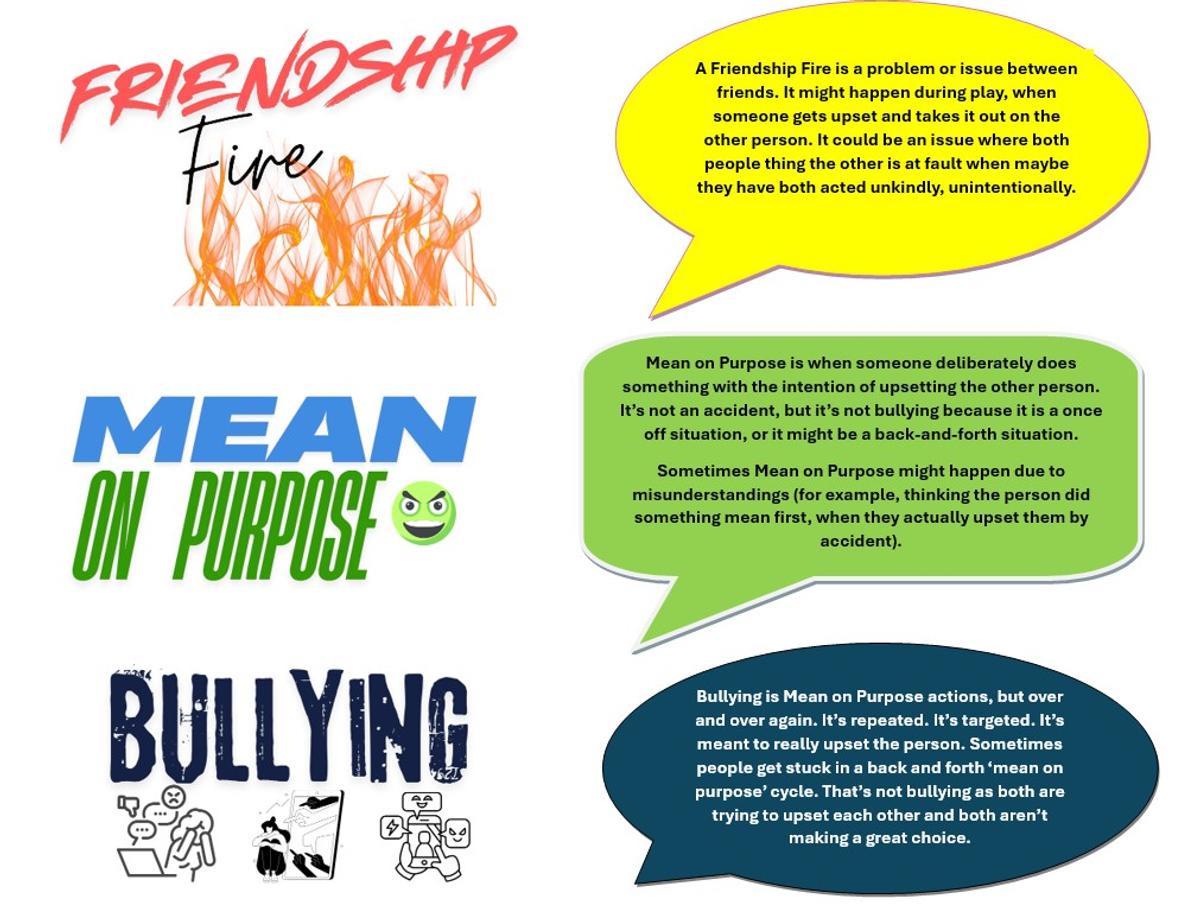Wellbeing

Wellbeing and Disability Inclusion
Friendship Fires
This year, we are focusing on building shared language around the different concepts in the Stand Up Project.
The most common type of conflict that our students might experience, are Friendship Fires which are arguments or problems occurring between friends. If left unsolved, they might “get bigger” and become a bigger “fire” that is harder to sort out.
A Friendship Fire is not bullying, as it doesn’t involve targeted, repeated, purposely mean or hurtful behaviour.
Each year level is in the process of planning and implementing lessons about Friendship Fires, to build that shared language. These lessons will focus on the learning intention of understanding what a friendship fire is. Anecdotally, we have seen that in earlier class discussions, students can articulate what “Mean on Purpose” is, as there is a pretty big clue in the name, but find Friendship Fires a bit more complex to explain.
We asked students in the playground what they knew about Friendship Fires, before these lessons were implemented, to see what prior knowledge the students had. Our prediction was that the older students would have a more concise understanding due to their participation in workshops last year and with more time navigating the ups and downs of peer relationships, might be more readily able to connect the concept to their own experiences.
“A friendship fire is when friends are fighting.” (Year 1)
“When they are playing hide and seek, but there’s a problem.” (Year 1)
“I’ve heard of a friendship fire, but I can’t explain exactly what it is.” (Year 2)
“I know about that, it's when friends are both arguing.” (Year 1)
“A group of friends are arguing, they can’t come to an agreement so they keep arguing.” (Year 2)
“It means they are not having a good time, they want to play a game, but someone else wants to play a different game. I’m not sure how they will solve it.” (Year 1)
“It's small arguments between friends.” (Year 4)
“When two friends get into an argument, they don’t agree and they might stop the game.” (Year 5)
“Friendship fires are small disagreements between friends.” (Year 6)
Over the next couple of weeks, the students will spend a wellbeing lesson focused on building understanding of what a friendship fire is and making a personal connection, as most students will have seen or experienced a time when there was a problem during
play or in a friendship.
Each year level team have planned lessons supporting this understanding and connection building in a way that is appropriate to their age group.
Katie
Wellbeing Officer

